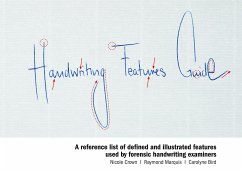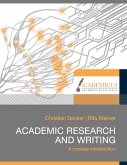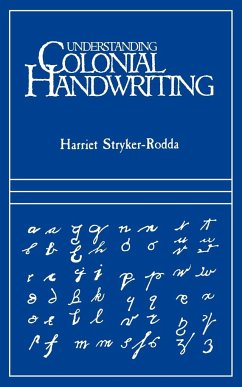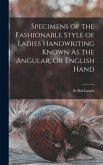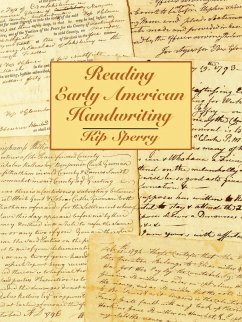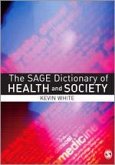Forensic handwriting examination follows a process comprised of four main steps: Analysis, Comparison, Evaluation, and Verification (ACE-V). While the process itself has been described and refined, very little effort has been undertaken to establish a clear and detailed list of features that the forensic handwriting examiner (FHE) must analyse in the first step of the examination. In-depth analysis of graphical features of handwritten texts or signatures is integral to the work of FHEs when requested to give an expert opinion, typically to determine whether a questioned handwritten item has been written by a specific writer. Indeed, it is these graphical features that will be compared between questioned and known samples, to establish similarities and differences that will finally be evaluated under two or more mutually exclusive propositions to reach a conclusion. A robust analysis based on clearly defined features is necessary to provide reliable and unbiased opinions.Numerous books and articles describe handwriting features that should be observed during the analysis stage of the examination. However, the descriptions can be vague, and several authors may use different terms to describe the same feature. It may also happen that the same term is used to define different characteristics. Moreover, illustrations of terms are often scarce and some- times of little help to understand what the corresponding features are. These problems are exacerbated when trying to equate terms in different languages.This project presents a comprehensive depiction of writing fea- tures (particularly found in Latin script) relating to the whole hand- written text or signature, which the authors consider relevant to help answer questions commonly ad- dressed by FHEs.It is the authors hope that the FHE community utilises this illustrated list of writing features, which we believe can promote a thorough and complete analysis and provide a common language for FHEs. Thus, this project seeks to contribute to establishing a systematic and standardized approach to forensic handwriting examination and move the discipline towards reproducibility and validation.
Hinweis: Dieser Artikel kann nur an eine deutsche Lieferadresse ausgeliefert werden.
Hinweis: Dieser Artikel kann nur an eine deutsche Lieferadresse ausgeliefert werden.

